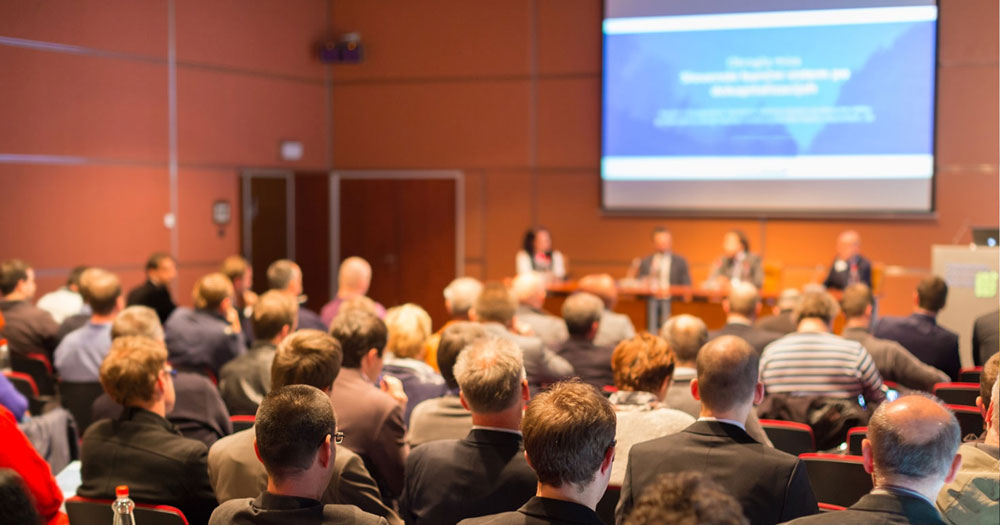The MICE sector (Meetings, Incentives, Conferences, Exhibitions) in Tunisia is constantly evolving to meet the new expectations of organizers and participants. With a growing demand for personalized experiences, hybrid events, and sustainable practices, MICE professionals in Tunisia are adopting innovative strategies to provide tailored solutions. This article explores the main trends shaping the MICE sector in Tunisia and the unique offerings that allow the destination to stand out.
1. Emergence of Hybrid Events
Hybrid events, which combine physical and virtual participation, have become a must-have in organizing MICE events. In Tunisia, many conference centers and hotels are now equipped to host hybrid events, featuring state-of-the-art audiovisual facilities and reliable internet connectivity. Organizers can thus expand their audience by allowing participants to follow the event online while ensuring quality interaction between on-site participants and those connecting remotely.
Hybrid events also provide the opportunity to create digital content, such as webinars, podcasts, or videos, which can be used after the event to extend its impact. For example, venues like the Odyssée Resort in Zarzis and the Radisson Blu in Djerba offer comprehensive services for live streaming and recording sessions.
2. Personalization of Experiences
Participants' expectations for MICE events have evolved towards a heightened demand for personalization. Companies seek to offer unique, tailored experiences that reflect their brand values and meet participants' specific interests. In Tunisia, organizers can incorporate elements of local culture to make events more authentic, such as Berber-themed evenings, dinners under tents in the desert, or Tunisian cooking workshops.
Hotels and conference centers in Tunisia also offer personalized services for events, such as customized room decorations, menus tailored to participants' tastes and dietary requirements, or organizing unique incentive activities, like excursions to oases or artisanal workshops. These initiatives enhance participant engagement and create lasting memories.

3. Rise of Outdoor Events
With its pleasant climate and varied landscapes, Tunisia is particularly well-suited for outdoor events. The beaches of Djerba, the Atlas Mountains, and the dunes of the Sahara offer exceptional natural backdrops for organizing seminars, workshops, or team-building activities. Event organizers can take advantage of the sunny setting to plan outdoor coffee breaks, seaside cocktails, or brainstorming sessions outdoors.
Venues such as hotel complexes in Hammamet and Sousse offer dedicated spaces for outdoor events, with facilities suitable for conferences, galas, and themed evenings. Options include terraces with sea views, landscaped gardens, or even open-air amphitheaters for shows and presentations.
4. Focus on Sustainability and Eco-Responsibility
An increasing number of event organizers prioritize sustainable practices to minimize the environmental impact of their events. In Tunisia, many MICE providers are adopting eco-responsible initiatives, such as using renewable energy, reducing plastic waste, and promoting local and organic products in catering.
Hotels and conference centers implement recycling programs, use energy-efficient technologies, and offer eco-friendly transportation options, such as bike rentals or electric vehicles. For participants, this translates to more environmentally friendly events aligned with many companies' sustainability values.
5. Integration of Technology for an Interactive Experience
The use of technology in MICE events in Tunisia is expanding rapidly, with an increasing adoption of interactive solutions to enhance participant experience. Mobile apps for events enable easy management of registrations, dissemination of agendas, and real-time interaction through polls or Q&A sessions. Organizers can also use augmented reality for virtual guided tours of historical sites or virtual reality for immersive product demonstrations.
Technological innovations also allow for the personalization of experiences based on participants' preferences, such as electronic badges that collect data on attended workshops or online platforms that offer activity suggestions based on users' interests.
6. Development of Wellness and Relaxation Experiences
Wellness is an increasingly prominent trend in the MICE industry, with a growing demand to integrate relaxation moments and wellness experiences into event programs. In Tunisia, organizers can leverage the reputation of thalassotherapy centers to offer spa treatments, yoga sessions, or guided meditations as complementary activities to conferences and meetings.
Hotels such as the Radisson Blu Palace in Djerba offer high-quality wellness services, with seawater spa facilities, pools, and fitness programs. These options contribute to enhancing participants' well-being and providing them with a rejuvenating break during events.
7. Rise of Secondary Destinations for MICE
The MICE market is diversifying, with a growing interest in secondary destinations that offer unique experiences away from major cities. In Tunisia, regions like Ksar Ouled Soltane, Sbeitla, or the Medenine region present authentic settings for organizing original events.
These secondary destinations can provide participants with memorable experiences, including visits to local artisans, explorations of archaeological sites, or excursions to natural parks. This approach enhances the experience while allowing the destination to showcase its diversity.
The MICE sector in Tunisia is witnessing significant changes driven by new trends that enhance participants' experiences. By embracing hybrid events, personalization, outdoor settings, sustainability, technology, wellness, and secondary destinations, Tunisian organizers are positioning themselves as leaders in the MICE industry. These strategies not only meet the evolving demands of companies and participants but also contribute to the destination's attractiveness.



